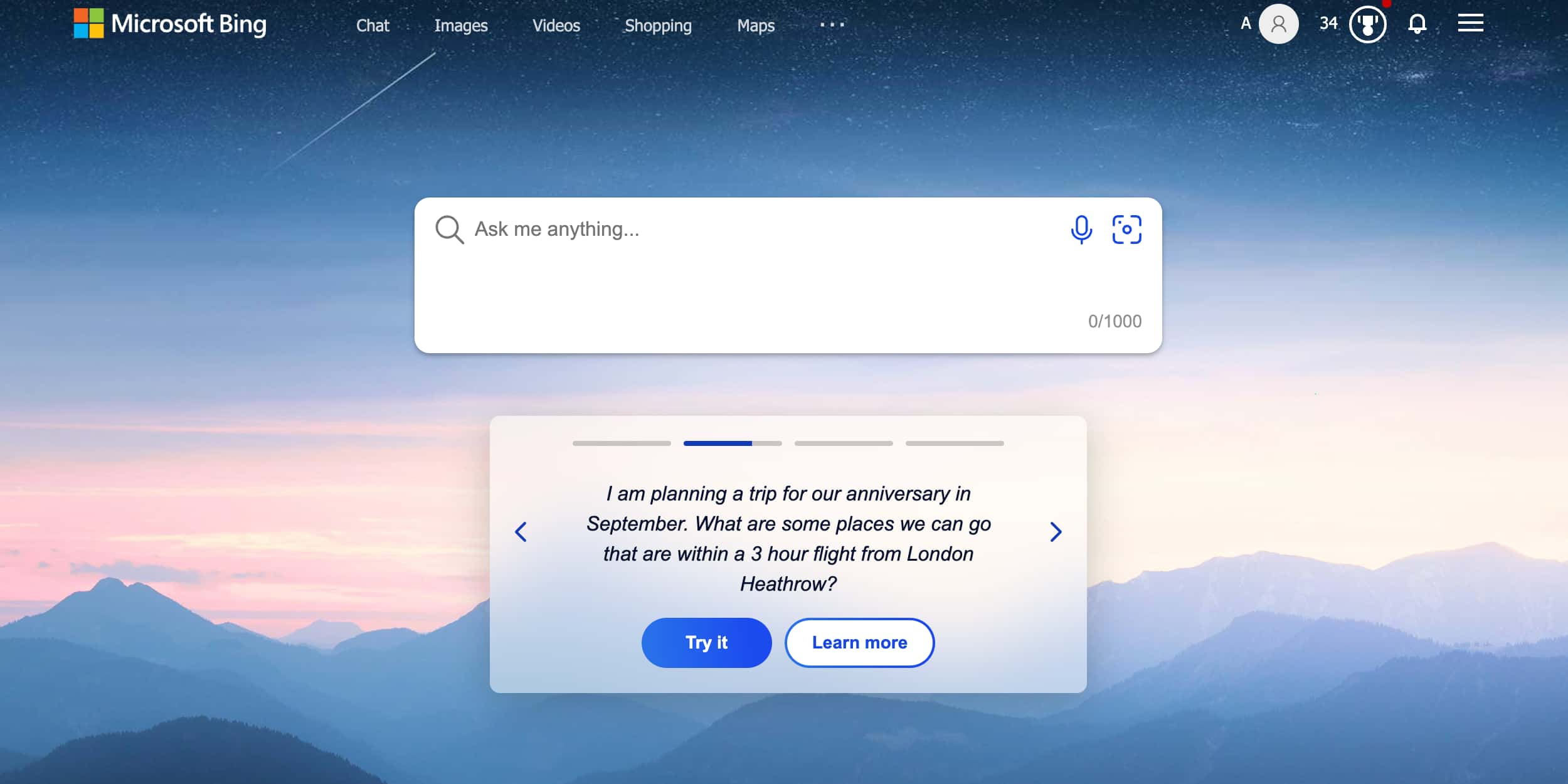
Search engines have become an indispensable tool in our life. We have harnessed their vast potential and reached a point where we take for granted that almost everything is searchable on Google. Our dependence has even given them disproportionate power and influence over online behavior, content consumption, and culture. And it’s probably not going to change any time soon. With the rise of ChatGPT, a new disruptive technology has come around: Generative AI.
What is Generative AI?
As indicated in the name, Generative AI is a type of artificial intelligence that uses machine learning to generate new content. Unlike other types of AI, which are trained on existing data sets and use statistical methods to make predictions, generative AI models can create entirely new content by learning the patterns and structures present in the data. More concretely, it is capable of generating algorithms, texts, images, or even music and video.
This technology has many potential applications across a wide range of industries and fields including design, entertainment, education, healthcare and medicine. But if we stick to the online search field, here’s how things could evolve for search engines, advertisers or content creators.
How could Generative AI affect the search landscape?
Revenue from advertising for publishers has been decreasing for several years. For example, Google has reduced income for websites by providing instant results, as these allow users to find the information they need without clicking on a website. But this leads to less and less traffic directed to non-Google sites: In 2019, almost half of the searches were resolved without any clicking, thus reducing ad revenue for and from these partnered sites.
Recently, Microsoft acquired ChatGPT developer OpenAI. Their intention? Revolutionizing its search engine to what they call “The new Bing”. They intend to steal a significant part of Google's 93% market share by getting into generative AI search first.
As advertising accounts for over 80% of Google's revenue, they are unlikely to tolerate any declines in their earnings. Even though there is no conclusive information on how paid search will be impacted, it is reasonable to assume that Google will improve its revenue models to feature ads in AI-generated search results.
This shift might be dangerous, because as soon as search engine companies start planning revenue generation by getting payments to promote content from certain websites or publishers, the free and fair web search results will be impacted and online search will become biased.
Advertisers currently pay for keywords so that their ads appear when those words are used in searches. This model is under pressure, because with Generative AI exact queries would become increasingly important. Advertisers might need to bid on specific phrases rather than just generic keywords, resulting in a more intense competition than before. Advertisers would then be able to place ads directly within the generated answers.
On the creative side, generative AI could be used in marketing campaigns to create custom ads tailored specifically for each user's needs without requiring manual input from marketers themselves, it could also even generate engaging content by creating, for example, a video ad from a raw text input. In a not too distant future, it would probably also improve the marketeer experience in the campaign creation process the same way Google Workspace will be transformed with useful AI features.
Will this change in the near future?
A crucial point is that in its current form, ChatGPT — which is only one example of the generative AI tools — is not a search engine because it doesn’t have access to real-time information the way a web-crawling search engine does. It has only been trained with a massive dataset that ends in October 2021. It has no idea of what’s happening in Ukraine right now and retraining it at the same speed the information on the internet evolves is extremely difficult in terms of processing power and thus financial cost. It also raises another big question: What are they going to learn and from whom? A generative AI tool must be trained on carefully selected datasets to avoid generating biased content , as they will be responsible for their own content while search engines are just guides pointing toward sources.
While Google has been the colleague who points us to a book in a library that can answer our question, ChatGPT is the colleague who has already read every book in the library and can answer our question. — Harvard Business Review
Despite the hype around generative AI, there are major technical, legal and financial challenges to overcome before these tools can reach the scale, robustness, and reliability of an established search engine such as Google. However, the web as we know it will definitely change and advertisers and content creators will have to adapt to this major shift in order to benefit from its power.



